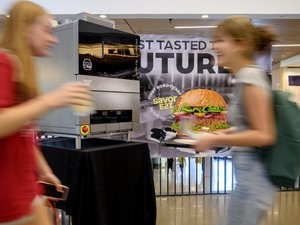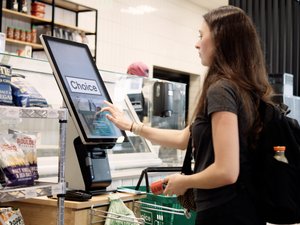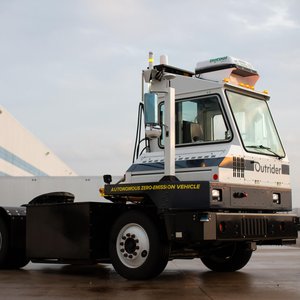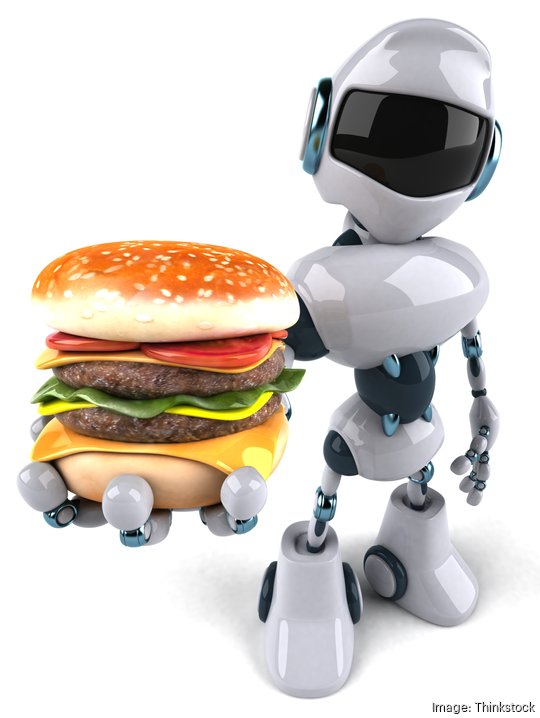
The restaurant industry isn’t an easy one to get into, nor is it easy to stay in. Profit margins are low and customer expectations are often high. In today’s volatile market, restaurateurs and those in the industry say there are challenges and opportunities when it comes to being efficient and hiring and retaining staff.
But could robots improve productivity and help with the current labor shortage? It's one solution that was discussed at a Denver Startup Week panel on Sept. 19 — how technology can lend a hand.
These solutions range from Denver-based Chamba, an on-demand staffing service for the hospitality industry, and Denver-based FoodMaven, a browser extension to help foodservice operators purchase supplies, to robot chefs like the one that recently launched at the University of Denver. Other solutions include using generative AI tools like ChatGPT and Google’s Bard to create training documents, tackle administrative tasks and develop marketing campaigns.
Robots and other tech offerings should support human employees and make their day-to-day jobs more efficient, experts said during the DSW panel.
“It’s about what can you do to augment, and if it can be done in a way that augments the staff and still has the customer service, it can work well,” Ben Deda, CEO of FoodMaven, said at the panel.
One local example is at chicken restaurant Birdcall. Here, customers order on a touchscreen device and pick up their meals from an order bay connected to the kitchen. CEO of Birdcall Peter Newlin said this single point of contact creates a seamless experience with an efficient flow and works well for a fast-food restaurant.
A robot hostess at Chili’s that gets lost on the way to the table, isn’t a good customer experience, Newlin said recalling his recent encounter.
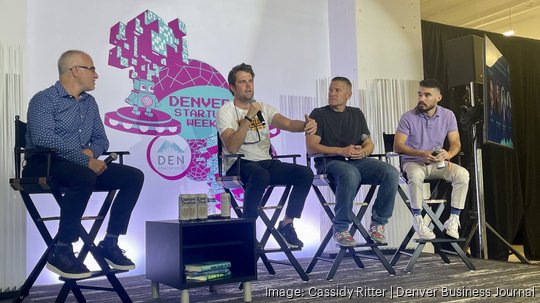
Implementing new tech
Before rolling out new technology or robot hosts and servers, restaurants need to evaluate their brand and how they want to be perceived, Newlin said. Newlin is also the chief vision officer at Gastamo Group, which operates Park Burger, Homegrown Tap & Dough and Perdida.
A handful of McDonald’s locations, for example, are now nearly employee-less. The only time customers see a human is when their order is ready. Newlin said this use of technology might work at McDonald’s where customers want their food to be fast and hot but would be less efficient at a Chick-fil-A or sit-down restaurant.
“Your brand is everything,” he said.
Newlin is advising restaurant owners not to completely change their tech stacks given the speed at which generative AI tools and other tech solutions are developing.
“Everything that’s going to be delivered in the next two to three years is going to be insane,” Newlin said. “It will completely change this industry.”
For now, however, there’s a gap in the market when it comes to using robots in restaurants, experts say.
Take Miso Robotis’ robot Flippy, for example. Rather than having a human cook French fries or other fried food, Flippy does the work. This gap or issue with robots like Flippy and others, according to Newlin, is that a human still has to prepare and stock these machines.
“It’s more of a gimmick right now,” Newlin said. “When they figure out how to get it from a hopper all the way to deliver food and where it’s positioned to where it can easily go out, it’s going to start to make a lot more sense.”
Newlin said Birdcall and his other restaurants “operate at the speed of Chili’s,” meaning they advance at the same pace national brands do rather than implementing any and all new tech on the market. The national brands are seeing a lot of things that we’re not yet seeing at a local level, he added.
For now, the consensus is that Denver restaurants are doing just fine without robots and other advanced tech.
“I want to see how some of these other tools go across other brands first,” Newlin said. “ ... That technology will be available, it’s just a question of when it’s going to be the right time for us to implement.”
